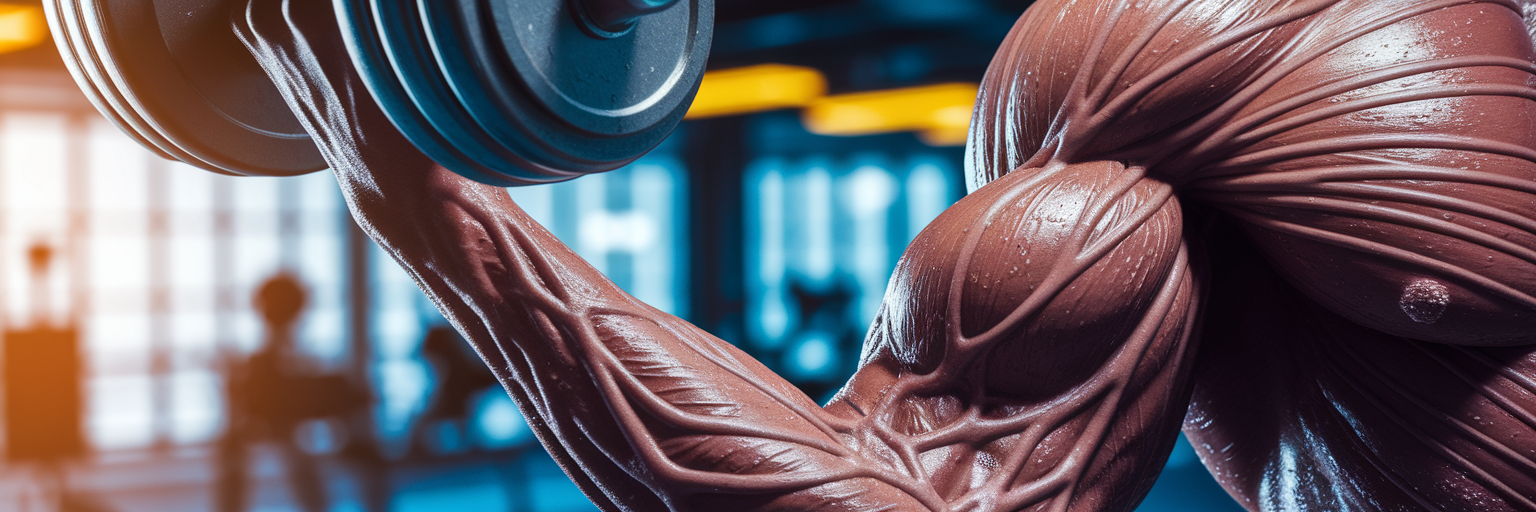The Plant-Based Performance Gap
If you're a vegan athlete in the US, you already know a thing or two about dedication. You meticulously plan your meals and workouts, balancing your ethical commitments with your fitness ambitions. But what if there was a simple, strategic tool to help you get more from your training? Let's talk about creatine.
Creatine is a natural compound your body produces and uses for quick bursts of energy, like the kind you need for lifting weights or sprinting. The thing is, the main dietary sources of creatine are meat and fish. This means that as a vegan, your baseline creatine levels are naturally lower. This isn't a deficiency, but it can create a small performance gap when it comes to explosive strength.
Thinking about how to build muscle on a vegan diet often focuses solely on protein, but energy production is just as important. Supplementing with creatine isn’t about "fixing" something that's broken. Instead, it's a smart way to level the playing field, ensuring your muscles have the same immediate energy reserves as anyone else. It’s one of the most effective ways to optimize your hard work in the gym. For more ideas on enhancing your plant-based fitness journey, you can explore the articles and tips on our blog.
Fueling Your Power and Intensity

So, how does creatine actually work? Think of your muscles' primary energy source, ATP, as tiny, rechargeable batteries. During a heavy set of squats, these batteries drain very quickly. Creatine acts like a rapid-charging power bank, quickly replenishing that energy so you can push out those crucial extra one or two reps. It’s in those challenging final reps where muscle growth is truly stimulated.
But there's another fascinating effect. Creatine pulls water into your muscle cells, a process called cellular hydration or "volumization." This does more than just give your muscles a fuller, more "pumped" look. This swelling is believed to send a signal to the muscle cells to grow, supporting muscle protein synthesis. Because vegans often start with lower creatine stores, the improvements in workout capacity and power can feel even more significant.
The tangible creatine monohydrate benefits you’ll notice in the gym are clear and measurable. For a deeper look into its mechanisms, we've covered the science behind how effective creatine monohydrate really is. In short, you can expect:
- More reps per set, leading to greater muscle stimulus.
- Increased overall strength and power output during lifts.
- Improved performance in short, high-intensity exercises.
- Enhanced muscle fullness through cellular hydration.
The Perfect Partner for Plant-Based Protein
Many athletes wonder if they need creatine if they're already taking a high-quality vegan protein powder. The answer is a resounding yes, because they perform two completely different jobs. Protein provides the amino acids, or the building blocks, your body needs to repair and build new muscle tissue after a workout. Creatine, on the other hand, is the high-performance fuel that powers the workout itself.
Imagine your body is a race car. Creatine is the high-octane fuel that allows you to race harder and faster. Protein is the expert pit crew that rebuilds the engine after the race is over. You need both to win. Even the best vegan protein powders don't contain creatine, which is why combining them is one of the most effective plant based bodybuilding tips. This pairing ensures you have both the energy to train intensely and the materials to recover and grow stronger.
This isn't just theory. As research published in Frontiers in Nutrition highlights, while plant-based proteins supply the essential amino acids for muscle repair, they don't provide creatine. This makes supplementation a key strategy for maximizing muscle synthesis. This powerful duo is easily one of the best vegan muscle building supplements you can have in your corner. To make your protein intake more enjoyable, check out these easy vegan protein recipes you'll actually crave.
Your Guide to Effective Creatine Dosing

Getting started with creatine is straightforward. There are two common approaches, and the best one for you depends on how quickly you want to see the effects. The most important rule? Consistency is everything.
The Optional Loading Phase
If you want to saturate your muscles with creatine as quickly as possible, you can start with a loading phase. This involves taking 20 grams per day for 5 to 7 days. To make this easier on your stomach, it's best to split this into four 5-gram doses taken throughout the day. This phase isn't mandatory, but it can help you feel the performance benefits a bit sooner.
The Standard Maintenance Phase
The most common and simplest method is the maintenance phase. Just take 3 to 5 grams of creatine every single day. That's it. Consistency is more important than timing, so take it whenever is most convenient for you, even on rest days. Some people like to take it post-workout with their protein shake, as the insulin spike from carbs and protein may help with absorption, but mixing it with water works perfectly fine. If you find standard creatine a bit gritty, look for a micronized version like our Creatine Monohydrate, which dissolves more easily.
| Phase | Daily Dosage | Purpose | Pro Tip |
|---|---|---|---|
| Loading Phase (Optional) | 20 grams | Quickly saturate muscle creatine stores | Split into four 5-gram doses throughout the day to improve tolerance. |
| Maintenance Phase | 3-5 grams | Maintain elevated muscle creatine levels | Take it daily, even on rest days, to ensure consistency. |
This table provides a simple guide to the two most common dosing protocols for creatine monohydrate. The loading phase is optional but can speed up initial results.
What the Science Says for Vegan Athletes
Creatine isn't just hype; it's one of the most studied sports supplements on the planet. For plant-based athletes, the evidence is particularly compelling. Because vegans and vegetarians start with lower muscle creatine stores, they often experience a more significant performance boost from supplementation. This makes creatine for vegan athletes an especially effective tool.
A study in the Journal of the International Society of Sports Nutrition confirms that supplementation is particularly effective for individuals on plant-based diets, leading to greater increases in strength and lean mass. In real-world terms, this translates to measurable gains in your bench press, better squat performance, and more power during high-intensity training. While more long-term research is always welcome, the current body of evidence overwhelmingly supports creatine as a safe and reliable supplement for plant-based athletes.
The science shows:
- Vegans experience a more pronounced response to creatine.
- Proven improvements in strength for key lifts like squats and bench press.
- Increases in lean body mass and anaerobic power.
- Considered one of the safest and most-studied supplements available.
Integrating Creatine for Maximum Results
Let's bring it all together. As a vegan athlete, you're already putting in the work. Adding creatine monohydrate to your routine is a simple, science-backed way to make that work count for more. It fills a common dietary gap, provides the explosive energy needed for more intense workouts, and works in perfect harmony with your plant-based protein to build muscle effectively.
Given that it's one of the most researched supplements available, you can feel confident adding it to your regimen. If you've hit a plateau or just want to ensure you have all the tools for success, it might be time to give it a try. Explore our full range of supplements to support your goals, and feel free to share this article with other vegan fitness friends in your community!



